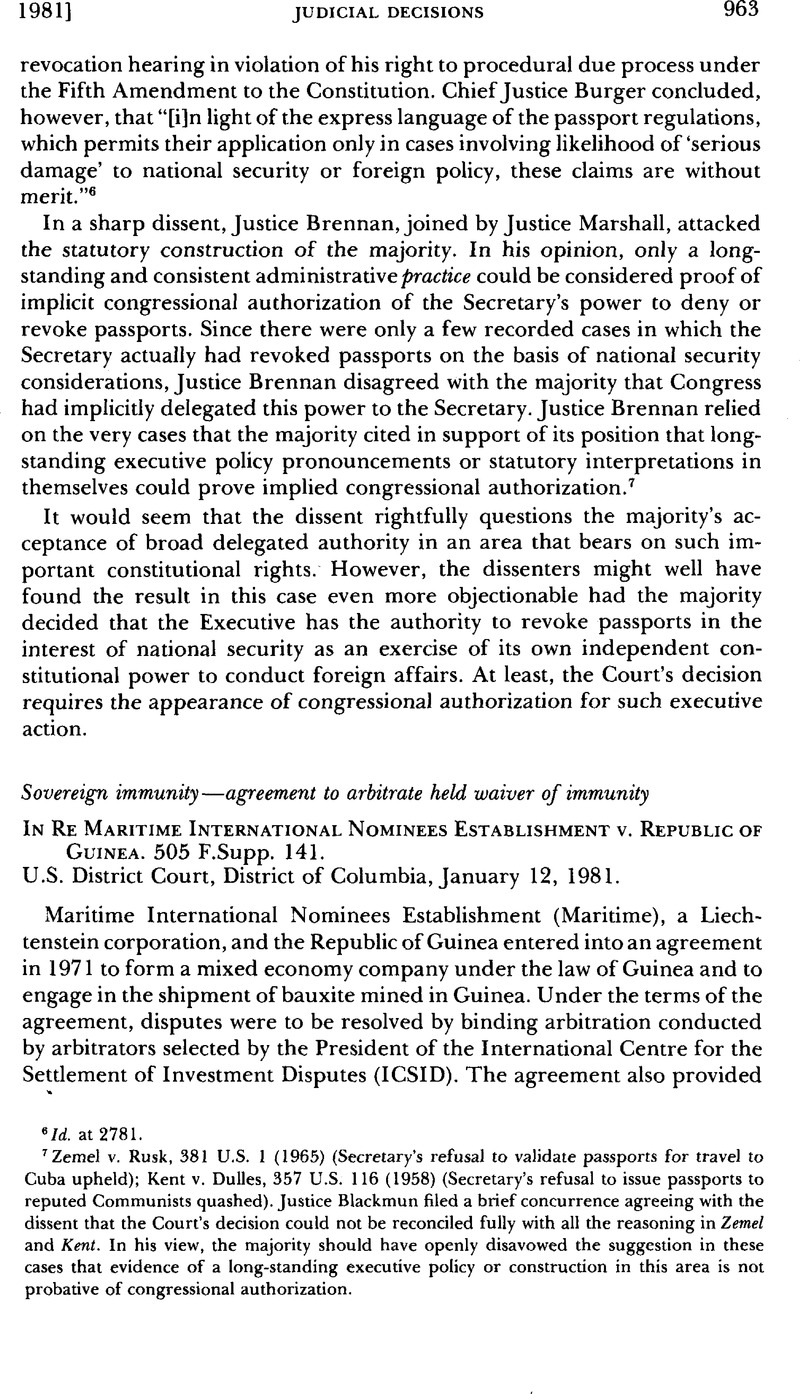No CrossRef data available.
Article contents
In Re Maritime International Nominees Establishment v. Republic of Guinea
Published online by Cambridge University Press: 27 February 2017
Abstract

- Type
- Judicial Decisions
- Information
- Copyright
- Copyright © American Society of International Law 1981
References
1 H.R. Rep. No. 94–1487, 94th Cong., 2d Sess. 18 (1976).
2 By finding that Guinea had agreed to arbitration in the United States the court never had to reach the more controversial issue, i.e., whether an agreement to arbitrate in a country other than the United States is an implied waiver of immunity from the jurisdiction of U.S. courts. Compare Verlinden B.V. v. Central Bank of Nigeria, 488 F.Supp. 1284 (S.D.N.Y. 1980), off’d, 647 F.2d 320 (1981) (agreement by Nigeria to arbitrate in France under Swiss law does not waive immunity in U.S. courts) with Ipitrade Int’l, S.A. v. Federal Republic of Nigeria, 465 F.Supp. 824 (D.D.C. 1978) (agreement to arbitrate in France under Swiss law waives immunity in U.S. courts); and Libyan American Oil Co. v. Socialist Peoples Libyan Arab Jamahirya, 482 F.Supp. 1175 (D.D.C. 1980), 75 AJIL 148 (1981), vacated, No. 80–1207(D.C. Cir. May 6, 1981).
3 505 F.Supp. 141, 143.
4 In addition, the United States filed a suggestion of interest with the court of appeals on Feb. 9, 1981 in response to diplomatic pressure by the Republic of Guinea. See 75 AJIL 656(1981).
5 Motion by the U.S. for Intervention, at 6.
6 647 F.2d 320 (1981), infra.
7 In addition, the Convention on the Recognition and Enforcement of Foreign Arbitral Awards (9 U.S.C. §§201–208 (1978), 21 UST 2517, TIAS No. 6997, 330 UNTS 3) and the Convention on the Settlement of Investment Disputes (17 UST 1270 (1966), TIAS No. 6090, 575 UNTS 159) may conceivably provide additional bases for federal jurisdiction.


